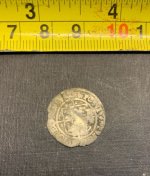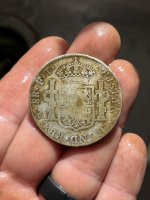Stand Watie
Jr. Member
Ok I'm fixing to order a detector I can use in water. I won't be diving so the control box won't be getting wet intentionally, of course I could always trip and fall or drop it. So all I need is for the coil to be water proof. I'd like for the control box to be water "resistant" but it doesn't have to be water proof.
I've been reading a lot on here and there has been some mention about certain units being better for salt water.
• Does it really matter whether I'm hunting salt or fresh water as to which detector I get?
I hope to use it in both, but predominantly I'll be using it in fresh water.
• What is a good reasonably priced machine that will work in both salt and fresh water?
Thanks to all who reply.
~ Stand Watie
I've been reading a lot on here and there has been some mention about certain units being better for salt water.
• Does it really matter whether I'm hunting salt or fresh water as to which detector I get?
I hope to use it in both, but predominantly I'll be using it in fresh water.
• What is a good reasonably priced machine that will work in both salt and fresh water?
Thanks to all who reply.
~ Stand Watie
Upvote
0







